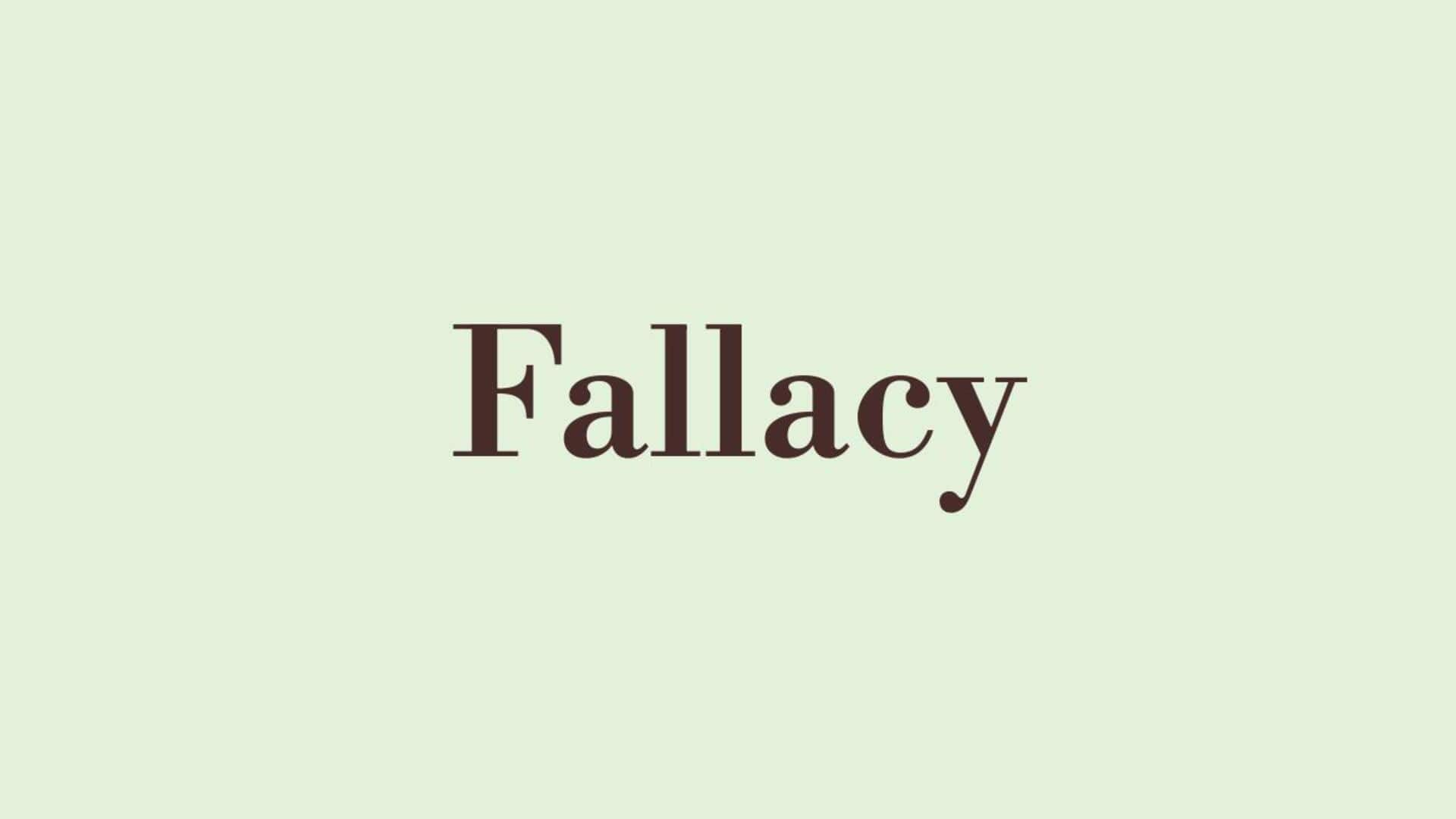
Word of the Day: Fallacy
What's the story
"Fallacy" refers to a mistaken belief or error in reasoning, often based on poor logic or misleading arguments. It's commonly used in debates, discussions, and critical thinking to highlight flaws in reasoning. Let's learn more about this interesting word and why it deserves a place in your vocabulary.
Origin
Origin of the word
"Fallacy" comes from the Latin word fallacia, meaning "deceit" or "trick," which in turn stems from fallere, meaning "to deceive." It entered English in the 14th century, carrying the sense of a false or deceptive idea. Today, it's often used in academic and everyday contexts to point out invalid logic.
Synonyms
Synonyms for 'fallacy'
Similar words include: misconception, error, delusion, falsehood, untruth, misbelief, deception, flaw, inconsistency, and illusion. These words all suggest something that appears true or logical but isn't. They're useful for calling out misleading ideas or challenging weak argument
Sentence
Sentence usage
Let's see how "fallacy" is used in various scenarios: "Believing that correlation means causation is a common 'fallacy.'" "The speaker exposed the 'fallacies' in the opponent's argument." "Relying on outdated data is a dangerous 'fallacy' in research."
Thinking
Why use the word
Using "fallacy" sharpens critical writing and thinking. It helps identify weak logic, challenge misleading claims, and improve clarity in arguments. Whether in essays, debates, or analysis, fallacy is key for calling out reasoning that just doesn't add up.